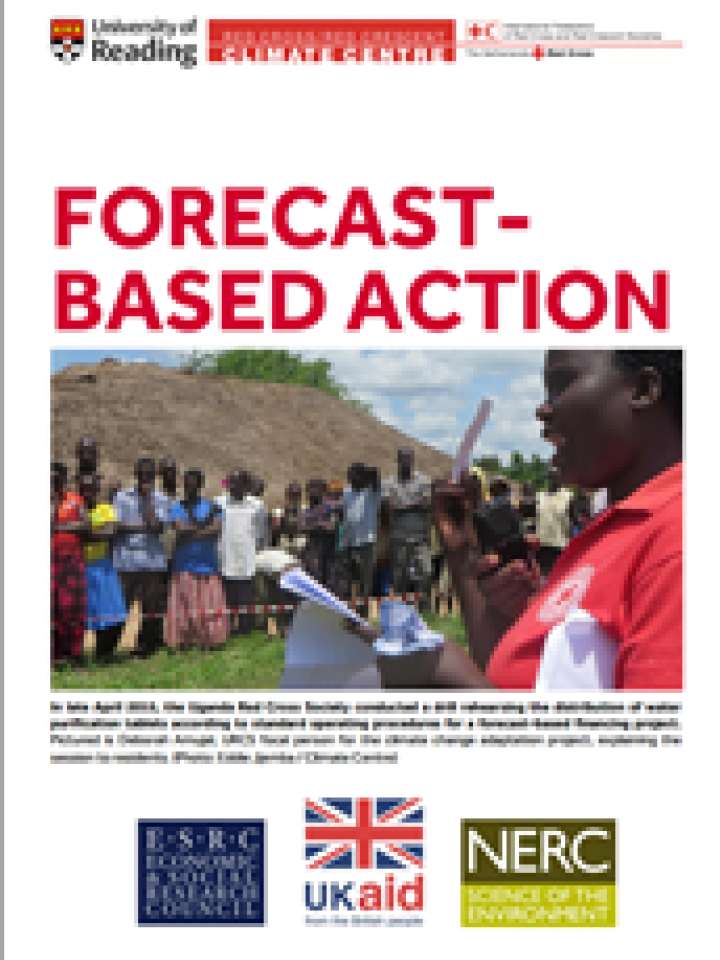This report demonstrates the interdisciplinary challenges in moving towards Forecast-based Action (FbA) for different humanitarian actors. This is a particularly critical strategy in light of changing risks worldwide. Research investments are needed to provide information, methods, and guidance for the successful establishment of such systems.
The aim of this report was to establish research priorities for informing the development of frameworks for FbA, basing these on the considerations, successes, and challenges faced in the Forecast-based Financing (FbF) pilot studies. While the FbF concept is applicable to any predictable hazards where loss-avoiding action is possible, this report focusses primarily on floods.
The FbF pilot studies were examined based on seven components that need to be considered when defining standard operating procedures: probability, magnitude, hazard, action, cost, effect and organisation. These components would need to be addressed when implementing FbA for any natural hazard; therefore they could be used as guidelines for setting up FbF or FbA for different hazards.
The research roadmap reflects the interdisciplinary research priorities and acknowledges the many different actors with an extremely broad variety of expertise that need to be brought together and managed in a coherent way. It serves as a guide for the development of new research and programmatic agendas that support DFID’s resilience framework and the Sendai Framework on Disaster Risk Reduction.
Explore further

